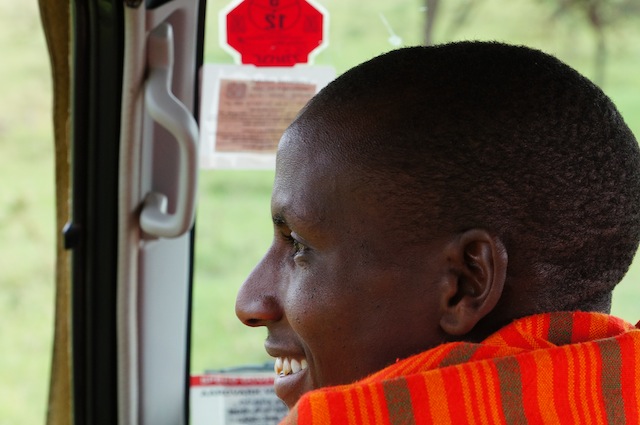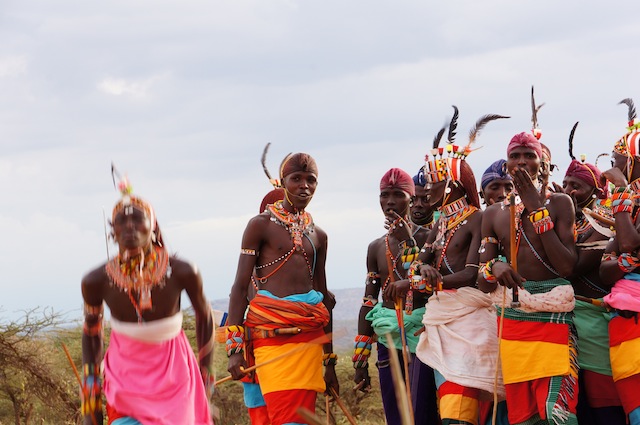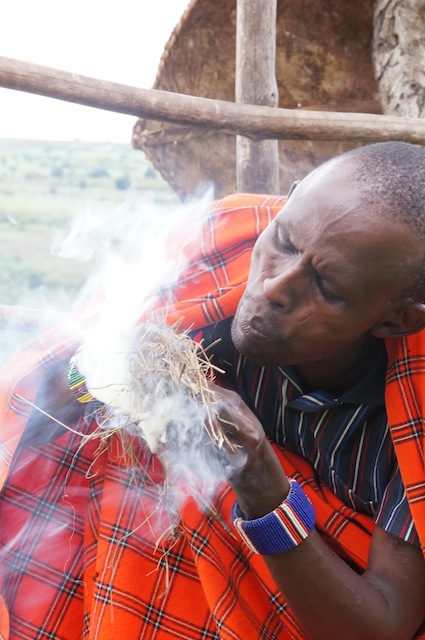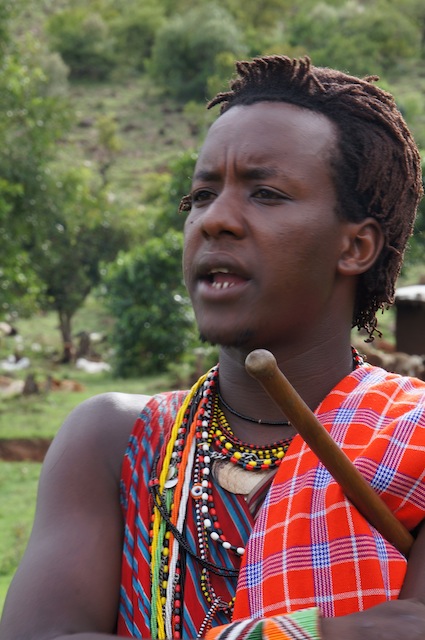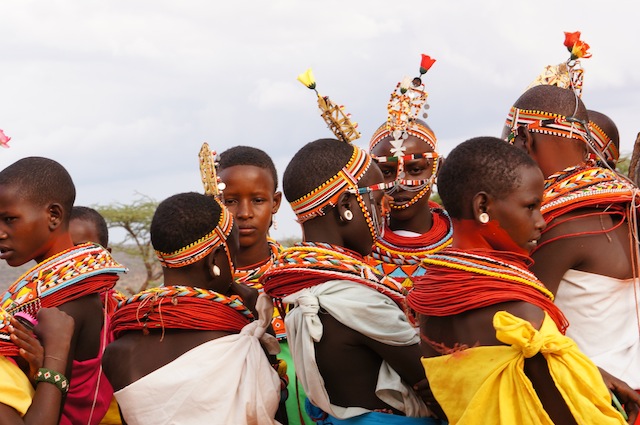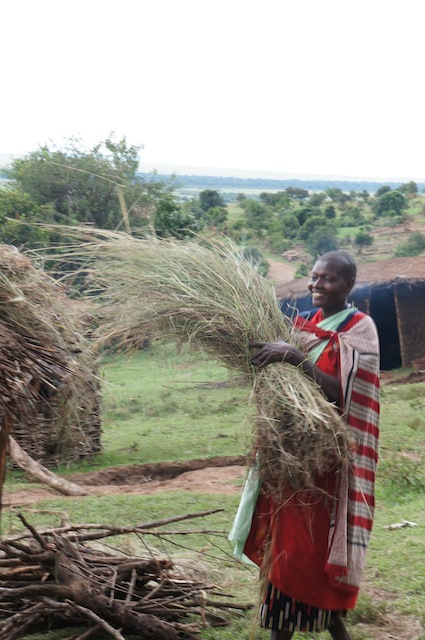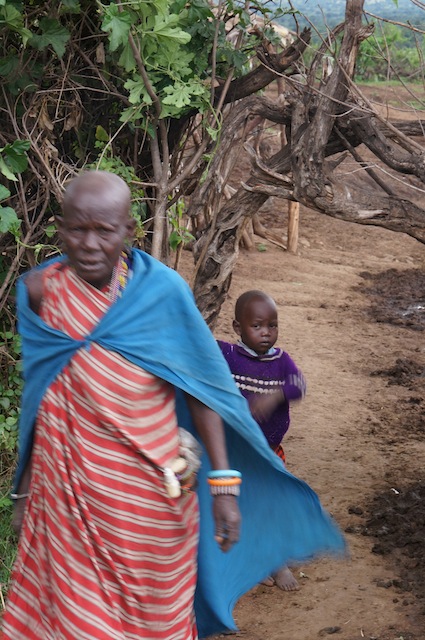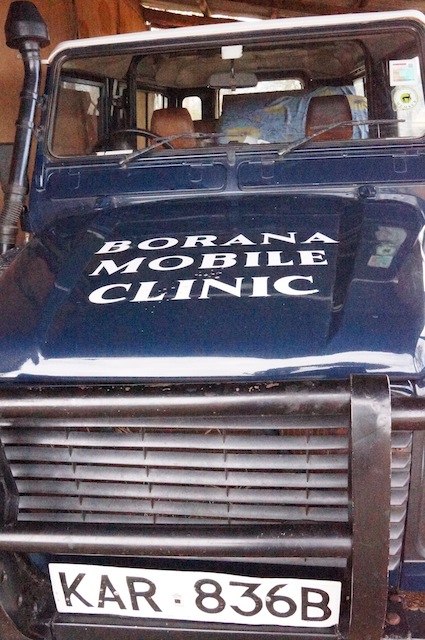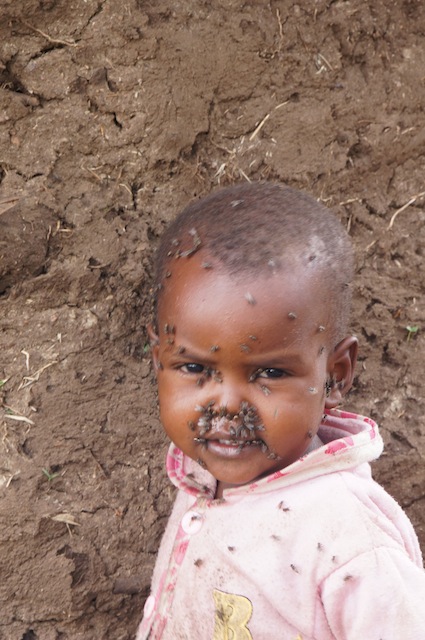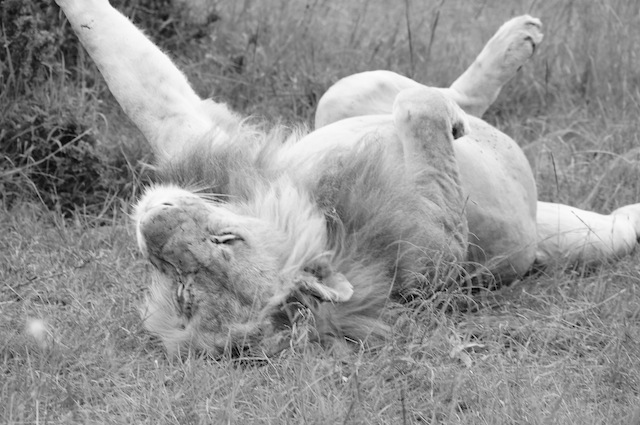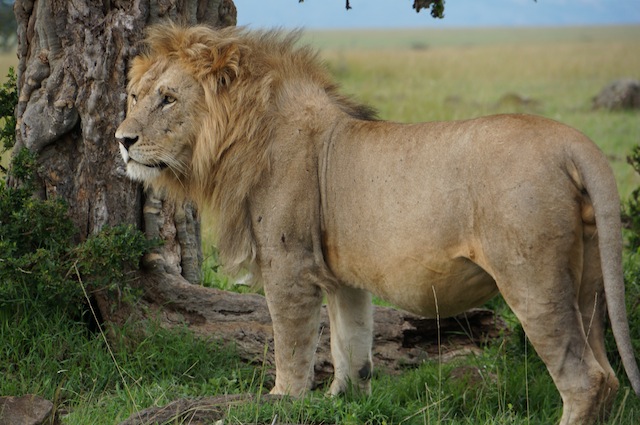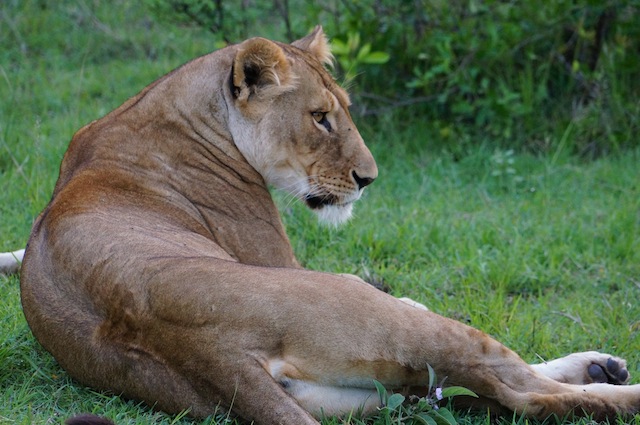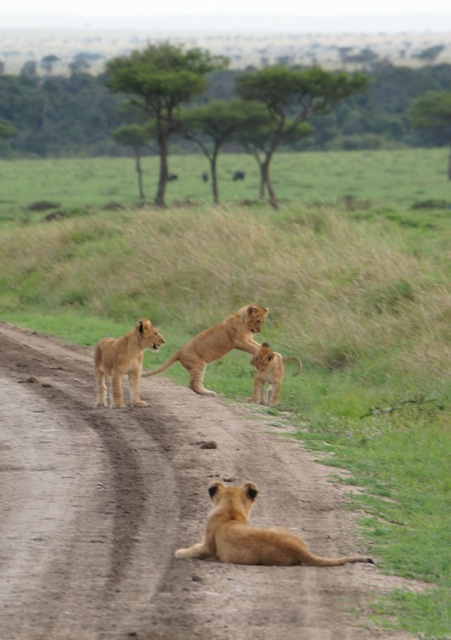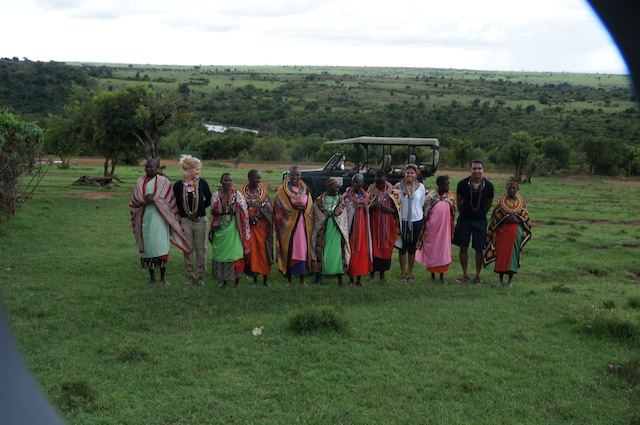Conversation with a Masai Muran (Warrior): Development and it's Impact on Tradition, Masai Mara, Kenya
My knowledgeable and charismatic guide at Alex Walker’s Serian (Bush Camp), Stephan, 23, and a proud Masai Muran, openly discussed how development is changing the traditions of his tribe. Among the many changes we discussed: tourism, women’s empowerment and conservation across Kenya.
Tourism brings people from across the globe, and namely America and the U.K. to Kenya. The money that is being brought into the region and the lodges, helps employ the local tribes, garner donations for schools and medical projects and even the selling of local crafts. My experience in Samburu was that the culture was much more conservative, traditional dress was mostly worn.
In the Masai Mara, where the game is the most dense in Kenya, there are even more international tourists. Here you may notice that the Masai people have adopted a more varied dress—an outdated t-shirt worn with the kukoi, 1,000 miler sandals (made of recycled tires), a machete at the waist , a wrist watch and of course the traditional beading. You certainly can’t begrudge the villagers from wanting to dress in more modern dress, but you can’t help but love the colors of the traditional fabrics, head dress and beading so different than any traditional dress I’d ever experienced.
Many lodges, especially, Borana and Bateluer Camp work closely with the local women to develop income generating businesses—from beadwork, honey and poultry. Many of the young men are adapting to more western views and supporting women having positions outside of the home, such as teaching and sometimes even the coveted sheparding position. While strides are being made to empower women, female circumcision is still practiced as are arranged marriages, dowries paid in cows, and family planning is largely not.
Borana and Bateluer Camp, have also created medical clinics to assist locals with every thing from vaccinations, family planning, sexual education, AIDS/HIV education and minor procedures. The treatments and education provided have a positive affect on the general health, but my Masai guide couldn’t help to lament the disappearance of the local medicine men and their use of herbs found in the bush.
These same lodges are also dedicated to conservation education. In the recent past, as the Masai men became warriors (approximately at the age of 15), they were circumcised and then went to kill a loin to show their bravery. The role of the warrior is still to protect the people of their nomadic tribe and their livelihood—cattle.
Through education provided by organizations such as the Laikipia Wildlife Forum and Living with Lions, local Samburu and Masai have learned about endangerment of species such as lions, and the negative impact that this practice could have international tourism (wildlife is the number one reason inbound travelers come to Kenya). Tracking of lions through collaring, allows NGO’s such as Living with Lions, to provide the local shepherds warnings that lion are in their area or locations to avoid. Unfortunately, lions will still prey on cattle and some cattle herders will poison the carcass of a slain cow to protect the rest of the herd from the pride.
My verbose Masai guide, acknowledges that tradition preservation, women’s empowerment and conservation are an “education in process”. He is still proud to be a warrior and committed to educating others. He hopes to continue to demonstrate that a celebration of bravery and manhood can be achieved with respect for his background, nature and women. Stephan says that he is responsible in his role as a guide, and other Masai and Samburu Marun (even though from different tribes), are to act as cultural advocates for international visitors.

